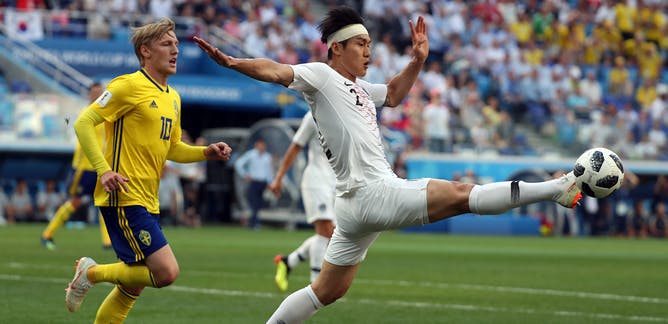
By Dr Jayne Caudwell, Bournemouth University
The globalisation of football means it can now be found in most parts of the world. It is celebrated as the national sport in many countries. But, we forget that “football” actually means “men’s football”. It’s the same with other popular sports – our habit is to refer to basketball and women’s basketball, cricket and women’s cricket, ice hockey and women’s ice hockey. This naming places men’s football as the dominant universal and natural norm, while women’s football becomes the “other” version.
If we want a level football playing field, then “football” should be redefined by changing our reference to tournaments, championships and leagues to “men’s football” if that is what is being played. It’s time we started referring to the men’s football World Cup, just as we refer to the women’s football World Cup.
Women and girls have long been treated as second-class citizens in the many worlds of football, including playing, officiating, governing and spectating. And indeed, in the build up to the 2018 men’s World Cup, there was much discussion about racism and homophobia – but practically none about football, gender, sexism and misogyny.
The histories of the development of football in most countries around the world show that women and girls have been denied access to pitches, equipment, coaches, training, stadiums and financial support. These material opportunities are important because they enable and validate participation – and full football citizenship.

Finland takes on Austria in a qualifier for the 2019 Women’s World Cup. EPA
Media sport pages cover men’s sport. During the football season, the coverage is dominated by stories of men’s football. Women footballers seem to not exist. The sport press obliterates them.
But women and girls are playing, officiating, spectating and commentating on the game in ever increasing numbers around the world. The England women’s team outperforms the men’s team on the European and world stage. They are currently ranked ten places higher, in second position. And yet, the gender pay gap in football is atrocious.
Ignoring sexism
While Russia, as host of the men’s football World Cup 2018, has been criticised for its poor record in dealing with homophobic and racist abuse, nothing has been said about gender-based abuse or discrimination.
Instead, ahead of the men’s World Cup, Russian MPs have been arguing over whether Russian women should or should not have sex with visiting (presumably male) football fans. The UK Foreign Office released advice on race and LGBT concerns, but there’s nothing on how sexist chanting can make men’s football a hostile environment for women. You only need to look at the sexism experienced by doctor Eva Carneiro and assistant referee Helen Byrne in the men’s premier league to see how this plays out.
What’s more, many of the concerns about homophobia and racism at the men’s World Cup stem from wider cultural issues in Russia. The same problems are evident with sexism and misogyny, yet they are curiously absent from the discussion when it comes to football. Cultural problems that affect men extend into the sporting arena, but not those that affect women.
In 2017, the Russian parliament passed legislation loosening laws on domestic violence. Russian women who support the #MeToo movement have come up against draconian assembly laws that say only one person is permitted to make a public protest.
There are no campaigns in international men’s football that aim to stop sexism, or call for anti-sexism and an end to gender-based violence.
Meanwhile, the women and girls who have fought hard to play football often encounter negative responses from the general public and from the media. Sport sociologists have found that sportswomen are trivialised, sexualised and experience symbolic annihilation – they simply don’t exist in images of the sport. A recent poster depicting Iranian fans is a prime example. Not a single female face features.
Women’s and girls’ sporting achievements are reduced as a result of ridicule. Their bodies are considered sexual objects rather than for playing sport. Former FIFA president Sepp Blatter’s comment that women should play in tighter shorts to attract more fans to the game is a classic example of this. More recently, feminist author Laura Bates challenged FIFA for describing player Alex Morgan as “easy on the eye and good looks to match” as well as the FA for tweeting about “lionesses go back to being mothers, partners and daughters” after playing in the women’s World Cup.
It’s easy to imagine that this men’s World Cup in Russia will continue to disregard gender, sexism and misogyny. And yet, sport, specifically football, has potential to incite change, and reform.
Renaming to men’s football is an easy and simple step in the direction towards equality. We may as well start with the men’s World Cup 2018.
Jayne Caudwell, Associate Professor Leisure Cultures, Bournemouth University
This article was originally published on The Conversation. Read the original article.

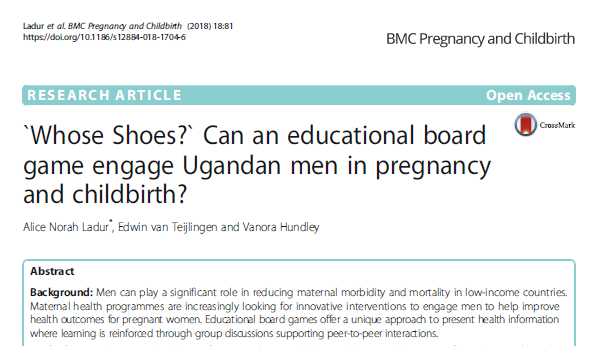 The results of the pilot study were promising; participants reported the use of visual aids and messages were easy to understand and enhanced change in perspective. Men in this study were receptive on the use of board games as a health promotional tool and recommended its use in rural Uganda. The paper concluded that key messages from the focus group appeared to be that the board game is more than acceptable to fathers and that it needs to be adapted to the local context to make it suitable for men in rural Uganda
The results of the pilot study were promising; participants reported the use of visual aids and messages were easy to understand and enhanced change in perspective. Men in this study were receptive on the use of board games as a health promotional tool and recommended its use in rural Uganda. The paper concluded that key messages from the focus group appeared to be that the board game is more than acceptable to fathers and that it needs to be adapted to the local context to make it suitable for men in rural Uganda

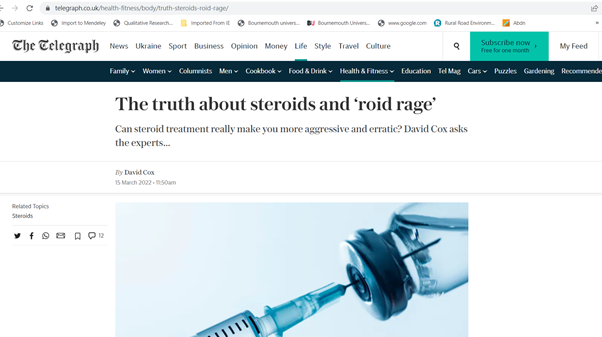

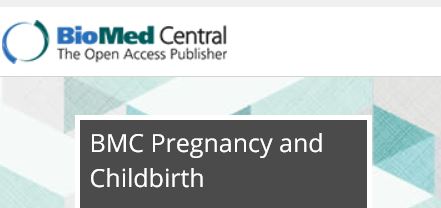
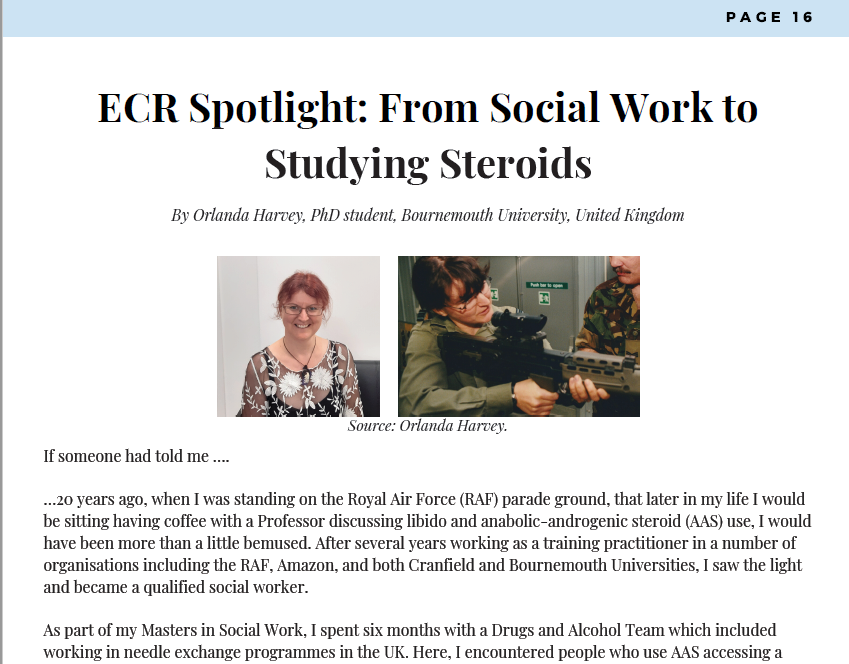
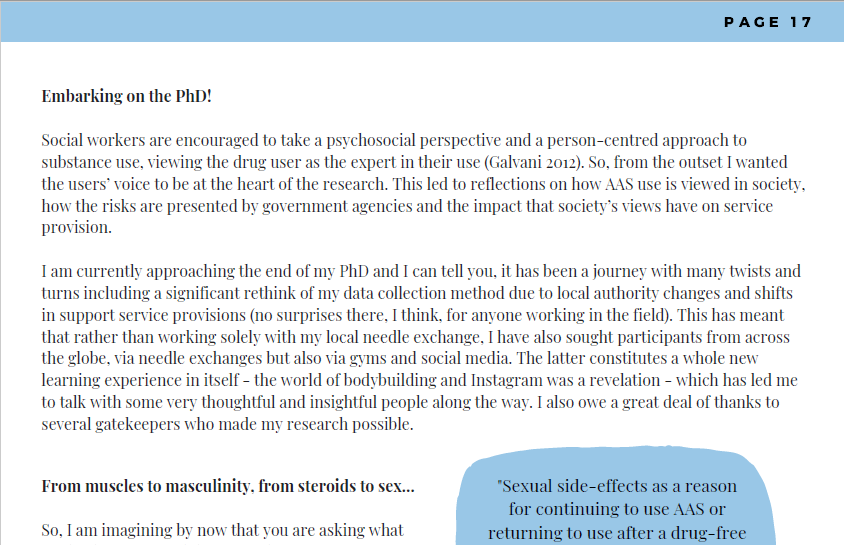


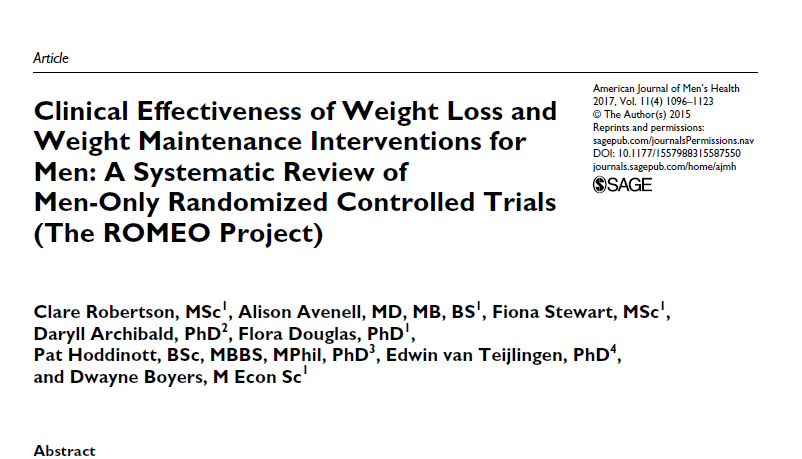
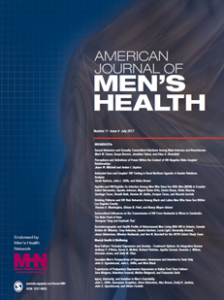
 The April issue of the Journal of Neonatal Nursing will publish the latest article written by a combination of Faculty of Health & Social Sciences staff and Visiting Faculty. The paper ‘Experiences of fathers with babies admitted to neonatal care units: A review of the literature’
The April issue of the Journal of Neonatal Nursing will publish the latest article written by a combination of Faculty of Health & Social Sciences staff and Visiting Faculty. The paper ‘Experiences of fathers with babies admitted to neonatal care units: A review of the literature’ 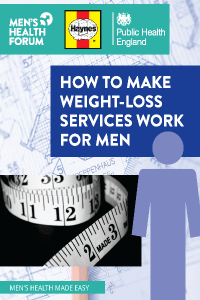
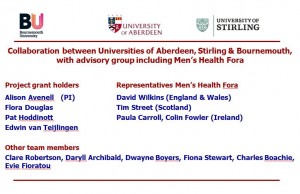











 REF Code of Practice consultation is open!
REF Code of Practice consultation is open! BU Leads AI-Driven Work Package in EU Horizon SUSHEAS Project
BU Leads AI-Driven Work Package in EU Horizon SUSHEAS Project Evidence Synthesis Centre open at Kathmandu University
Evidence Synthesis Centre open at Kathmandu University Expand Your Impact: Collaboration and Networking Workshops for Researchers
Expand Your Impact: Collaboration and Networking Workshops for Researchers ECR Funding Open Call: Research Culture & Community Grant – Apply now
ECR Funding Open Call: Research Culture & Community Grant – Apply now ECR Funding Open Call: Research Culture & Community Grant – Application Deadline Friday 12 December
ECR Funding Open Call: Research Culture & Community Grant – Application Deadline Friday 12 December MSCA Postdoctoral Fellowships 2025 Call
MSCA Postdoctoral Fellowships 2025 Call ERC Advanced Grant 2025 Webinar
ERC Advanced Grant 2025 Webinar Update on UKRO services
Update on UKRO services European research project exploring use of ‘virtual twins’ to better manage metabolic associated fatty liver disease
European research project exploring use of ‘virtual twins’ to better manage metabolic associated fatty liver disease